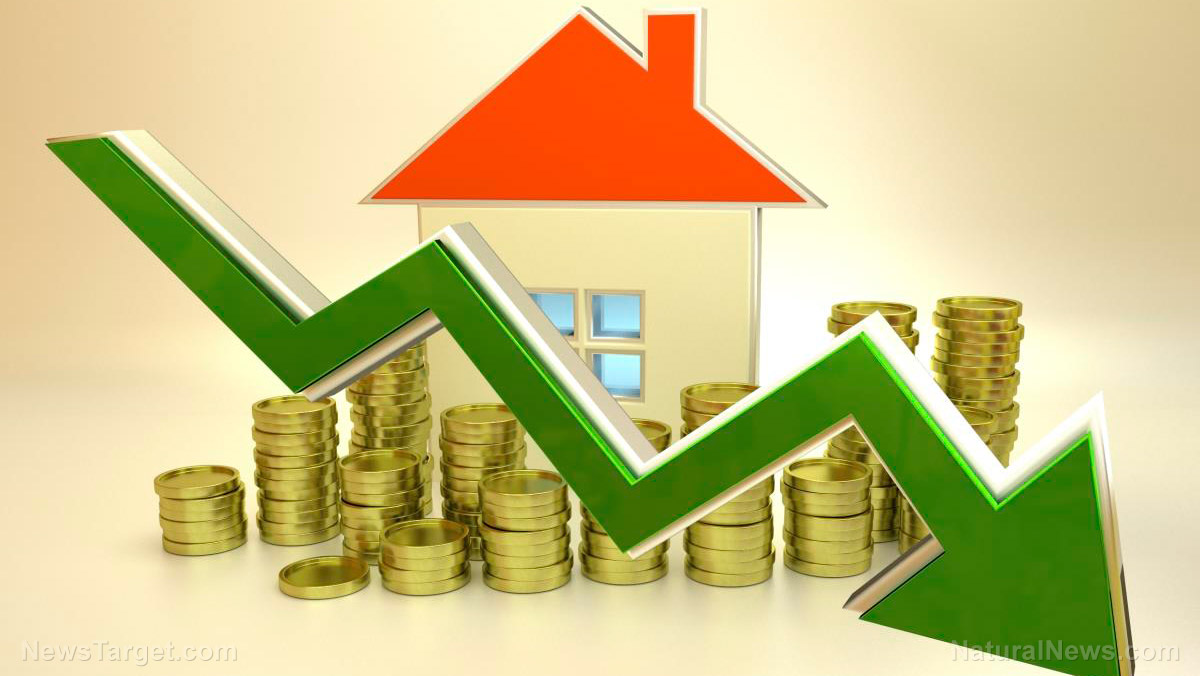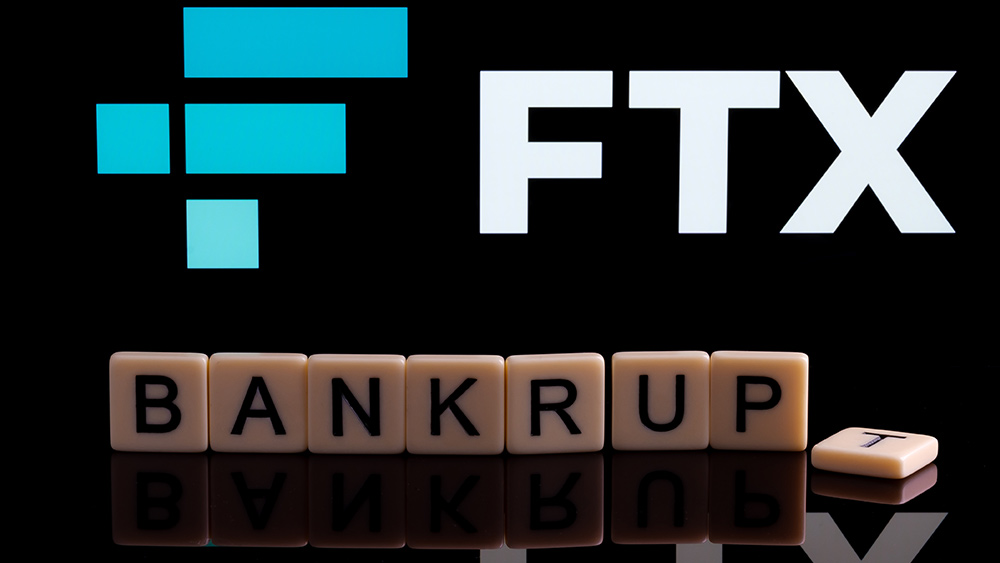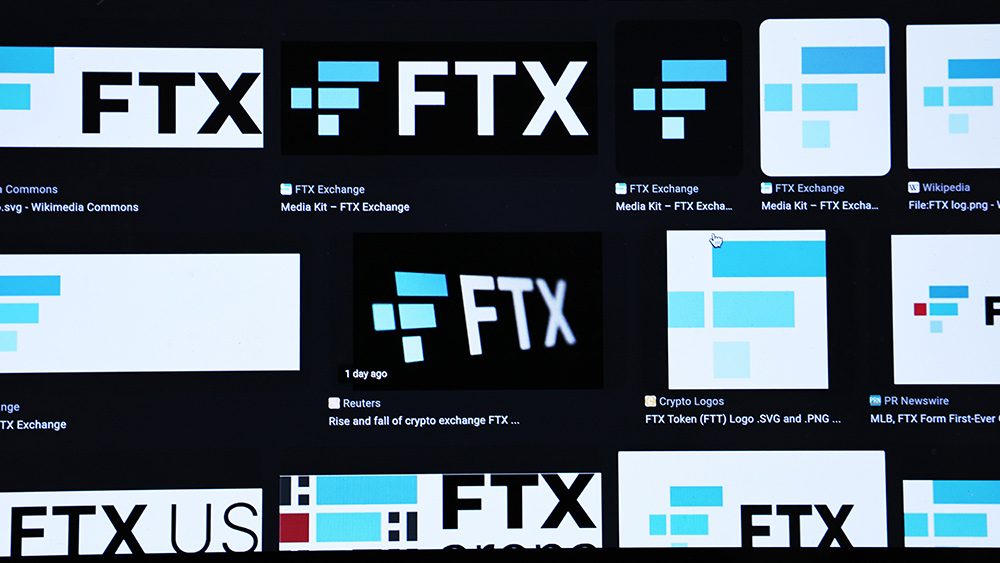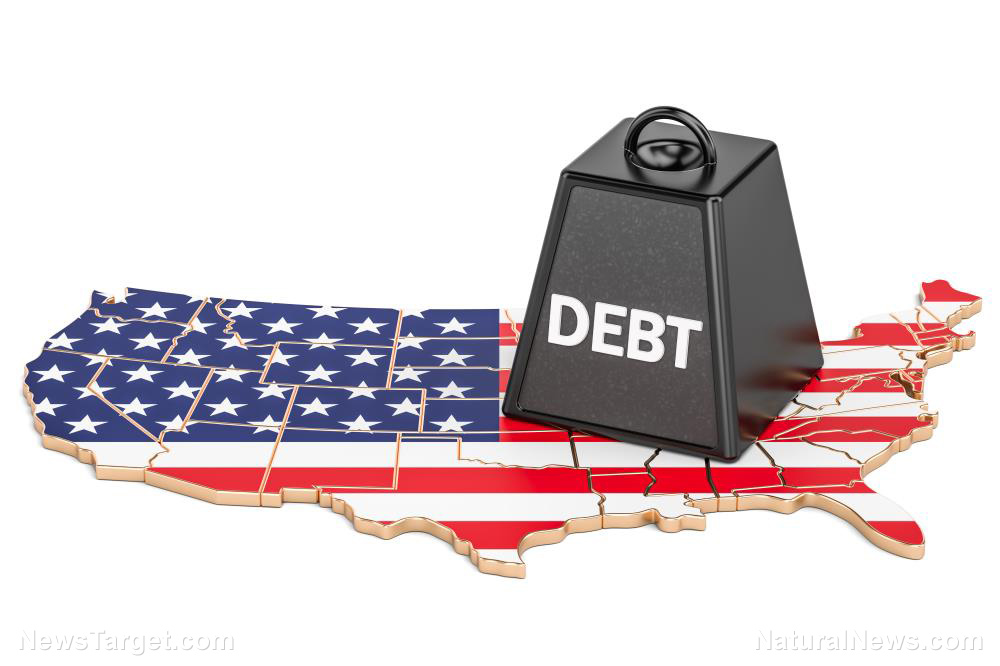Housing recession has arrived: 270,000 mortgages obtained in 2022 already underwater
12/08/2022 / By Ethan Huff

The Housing Market Index (HMI) reached its lowest level in a decade this week, which serves as more proof that the United States is already in a recession.
A major metric that gauges the outlook for home sales, the HMI declined in November to 33, based on a 100-point scale. Other than a similar dip at the start of the “pandemic,” this figure is notably low as “[a]nything under 50 spells trouble,” to quote The Hill‘s Daniel de Visé.
In October, interest rates on a standard 30-year mortgage exceeded 7 percent, capping the largest single-year increase in at least 50 years. This year alone, upwards of 270,000 new mortgages are already underwater.
“Just to give you a sense of how far we’ve come, we started the year around 3 percent,’ said Michael Fratantoni, chief economist at the Mortgage Bankers Association. “It has just been a wild ride.”
To put this increase into perspective, an interest rate increase from 3 percent to 7 percent amounts to about $1,000 more per month having to paid on a mid-priced American home, according to Nadia Evangelou, senior economist at the National Association of Realtors (NAR).
Interest rates slightly cooled in December to 6.3 percent, which is slightly good news for the remaining few who have been waiting to buy a home. Things do not look good, though, going into 2023. (Related: The CDC [Centers for Disease Control and Prevention] is partially to blame for the problems plaguing the housing market.)
Is the U.S. headed towards a depression?
For most of 2022, the powers that be denied a recession. Now they are suddenly admitting to a recession because it is no longer deniable, based on everything that is transpiring.
Federal Reserve Chairman Jerome Powell seems to have signaled an easing up of rate hikes, which is why mortgage rates are starting to tick down. This downward movement, though, only further indicates that the U.S. is now in recession territory.
“We, others, many market participants are forecasting a recession in the United States and many other places around the world,” Fratantoni added. “That puts downward pressure on the rates.”
The housing market, at least, has been in a recession since midsummer, according to the National Association of Home Builders, which publishes the HMI with the help of Wells Fargo.
“The index has declined for 11 straight months,” noted Robert Dietz, chief economist for the homebuilders group.
“This is going to be the first calendar year in 11 years where single-family starts,” a measure of new home construction, “will total a smaller volume than the prior year.”
Dietz predicts a drastic double-digit decline. And since the broader economy tends to follow the housing market, this will translate into similar declines across other industries.
“The housing market leads the U.S. into recession, and it’s likely to pull it out,” Fratantoni said.
Since the vast majority of homeowners have fixed-rate mortgages secured at historically low rates under 4 percent, there is likely to be very little home selling during this time.
“Anybody with a fixed-rate mortgage who got their mortgage before the middle of this year is in really good shape,” Fratantoni added.
The roughly one in 10 homeowners that have adjustable-rate mortgages, on the other hand, could be in trouble if they are not already.
Keep in mind that just before the Great Recession of 2008, adjustable-rate mortgages comprised upwards of 35 percent of the home-lending market. When prices collapsed, many borrowers owed more than their homes were even worth.
The current situation is arguably better than that, depending on who you ask. If home prices plummet, however, then things could turn really ugly in an instant.
The latest news about the breakdown of the economy can be found at Collapse.news.
Sources for this article include:
Submit a correction >>
Tagged Under:
Bubble, chaos, Collapse, debt bomb, debt collapse, depression, economic riot, finance, housing, housing bomb, interest rates, market crash, money supply, mortgages, panic, recession, risk, supply chain
This article may contain statements that reflect the opinion of the author
RECENT NEWS & ARTICLES
COPYRIGHT © 2017 PENSIONS.NEWS
All content posted on this site is protected under Free Speech. Pensions.news is not responsible for content written by contributing authors. The information on this site is provided for educational and entertainment purposes only. It is not intended as a substitute for professional advice of any kind. Pensions.news assumes no responsibility for the use or misuse of this material. All trademarks, registered trademarks and service marks mentioned on this site are the property of their respective owners.




















